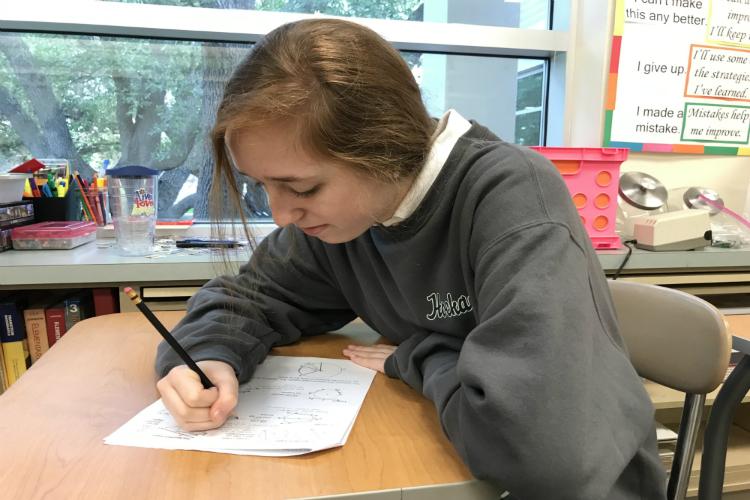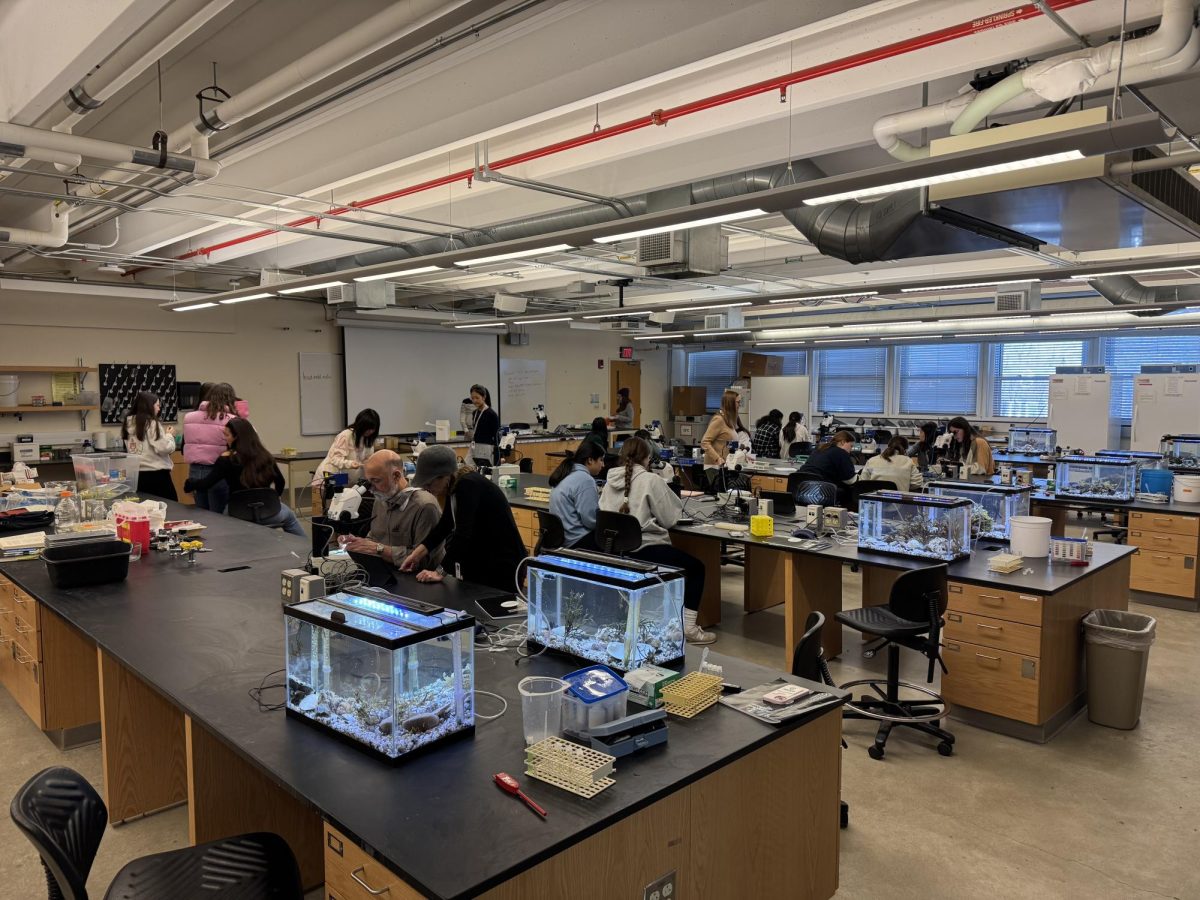//PICTURED ABOVE: Advanced Placement (AP) exams begin as soon as Monday, May 6 for some Hockaday Upper Schoolers. Students spend time preparing and reviewing for the year’s worth of material they will be tested on during the upcoming weeks.
As the long-awaited end of the year approaches, Hockaday students must review a whole year’s worth of information in preparation for their Advanced Placement (AP) test on top of all their other school work and assignments. Additionally, many students take more than one of these tests at the end of the year.
Hockaday students are well prepared for their AP tests. In May of 2018, 530 exams were administered to 241 students. Despite some of these students taking more than one test, 92 percent scored a three, four or five. This year, approximately 89 Form III students and 95 Form IV students are taking more than one AP exam.
According to the Texas Academic Performance Report from December of 2018, 41.3 percent of students enrolled in an AP class in the Dallas Independent School District took at least one exam. This includes about 9,000 juniors and 8,000 seniors. 32.2 percent of these students who tested got a qualifying score of a three or higher.
Paige Anderson, a Form III student at Hockaday, will be taking the AP Spanish and AP United States History (APUSH) tests.
“A lot of our homework for APUSH right now is to work on practicing… so it’s built into my work,” Anderson said.
Preparation for the test is a full year process. Throughout the year, students become familiar with AP-style questions, essays, format and subject matter. Kristen Blevins teaches AP Economics to seniors at Hockaday.
“The tests that I use all have AP-style questions so by the time students get to the AP exam, they’re familiar with the format,” Blevins said.
Especially for history classes, teachers look to not only teach the content, but also to teach students how to specifically formulate the types of answers that AP readers are looking for.
“As we go through different topics throughout the year, I will pull practice free response questions that have to do with those topics,” Blevins said.
For students enrolled in these classes, the March exam serves as a practice AP test. This is highly beneficial to students, as they review two-thirds of the year’s material for the March exam and can spend less time reviewing that information at the end of the year for the AP test. It additionally familiarizes students more with AP style writing and questions and helps students become more comfortable with the subject matter.
As the date of the exam gets closer, most classes take practice tests, have independent study time or review the structure of the test rather than the content.
“I usually have two weeks at the end for time to review,” Blevins said.
During this time, she goes over some of the content with the class and has them take practice multiple-choice tests.
“For APUSH, mostly it’s going over different essay writing, but teachers also give us practice sections and tests,” Anderson said.
This includes going over writing AP essays, document-based questions (DBQs) and long answer questions (LAQs).
When studying for the test, making a schedule and setting aside time for reviewing is incredibly helpful to some students.
“It would be better to identify some areas that you’re weaker on and study those throughout the week or few days before the AP,” Blevins said.
Most importantly, remember to get a good night’s sleep and eat a full meal before taking the AP test.
Story by Elisa Carroll
Photo by Sammy Freeman









